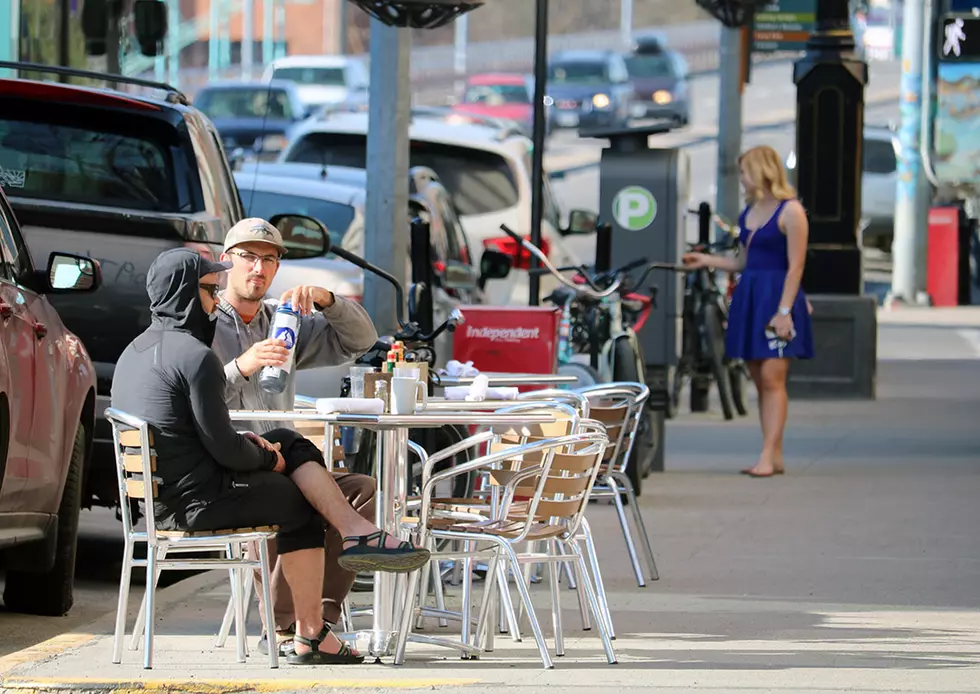
Parking Commission: Citywide parking district could help address housing, transportation
Citing the city's goals around housing and transportation, the Missoula Parking Commission this week agreed to hire a consultant to explore the creation of a citywide parking district.
The commission currently regulates parking in the downtown area and permit parking in some residential neighborhoods. But with Missoula's growth and its quest for greater density, regulated parking will be needed in other parts of the city, the commission agreed.
“It makes a lot of sense – though there are a lot mechanics to be worked out – to expand citywide instead of doing it piecemeal,” said commission member Glenda Bradshaw. “Doing it on a citywide basis would allow us to do a better job on behalf of the citizens and visitors to this community instead of just looking at it by location.”
City administrators this week challenged the parking commission to think outside the box to become more intentional in what it does. They also urged commission members to consider the city's goals around housing, equity and transportation, and the role parking plays in that equation.
Creating a citywide district positions the commission to address a number of future scenarios while making it more proactive as needs and opportunities arise.
“We would be best served – the citizens would be best served – if we had jurisdiction over the entire city with the understanding that we'd always be intentional with deliverance and any plans that would impact folks as part of the managed parking process,” Bradshaw said.
While the commission is moving to recommend a citywide district, it won't mean a parking meter on every residential street. Areas like the Riverfront Triangle and Hip Strip are poised for a number of large development projects, and managing parking will be key to both.
But instead of expanding the parking commission to select districts – piecemeal as Bradshaw put it – adopting a citywide district now is preferred. In doing so, the commission could more easily address issues and needs as they arise.
“There are parking commissions that encompass city limits. But we need to be clear as a commission – we're not going to put a meter on your residential street,” said commission chair Joe Easton. “We want to say that if and when there was an opportunity to participate in managed parking, here is a commission that has the resources and expertise to help.”
Dale Bickell, the city's chief administrative officer, said parking should be a central piece of the city's transportation and housing efforts. As it stands, he said, the city has a number of individual boards and commissions focused on transportation, but they don't always work in tandem.
That includes the Bike-Ped Advisory Board, the Transportation Policy Coordinating Committee, the Transportation Technical Advisory Committee and Mountain Line. Ensuring they work in unison in pursuit of the city's goals isn't always easy.
“The city would like to do a more holistic approach to transportation planning related to transportation governance,” Bickell said. “They're all connected and every one of those is a piece of the puzzle in what we're trying to do. The parking commission is part of that.”
Parking could play a key piece in the city's code reform efforts, which are set to begin this year. Providing parking in new developments consumes land and costs money, driving up the price of the end product.
When it comes to housing, reducing parking requirements could help address housing costs, and it's a tool the city is considering as it moves forward. The parking commission could help advance those goals with citywide jurisdiction.
One scenario could see the commission help fund a set number of parking spaces in exchange for a set number of affordable housing units. It believes the Missoula Redevelopment Agency could help, and the city is currently exploring other incentives around parking and housing affordability.
Enforcing the parking it provides will be required.
“We have engaged in public-private partnerships in the past – Roam is an example,” Easton said. “There are limitations in what we can invest in and bond, and other entities have to participate. But I don't think investing in private parking as a blanket statement is off the table, and there are public-private partnerships that are available to parking commissions.”
While creating a citywide parking district has its benefits, it also comes with challenges, the commission said. Among them, the commission doesn't have the resources to enforce parking violations across the city, and it's unlikely that the police department would willingly take that on, members suggested.
Setting the proper parking fees should also be considered as the plan advances, city officials said.
“One of the things we want to do, we need to be intentional with what the purpose of the rate is,” Bickell said. “How do we know we're at market rate? It's been a long time since the city has done a fee study. It would be something the Missoula Parking Commission should look at.”
Fees, enforcement and jurisdictional mapping are among the issues the consultant will explore. The commission this week directed staff to create a Request for Proposals in its search for a consultant.
“As commissioners, our job is to provide oversite,” said commission member Peter Walker-Keleher. “A topic like this, we'd engage a consultant and staff would work closely with the consultant to right-size or customize the district to fit the needs of Missoula, and the commission would lend its stamp of approval.”
Easton agreed.
“We have larger opportunities that aren't just limited to downtown. There are opportunities we'd like to advance with other goals. We have an opportunity to establish a new direction,” he said.
